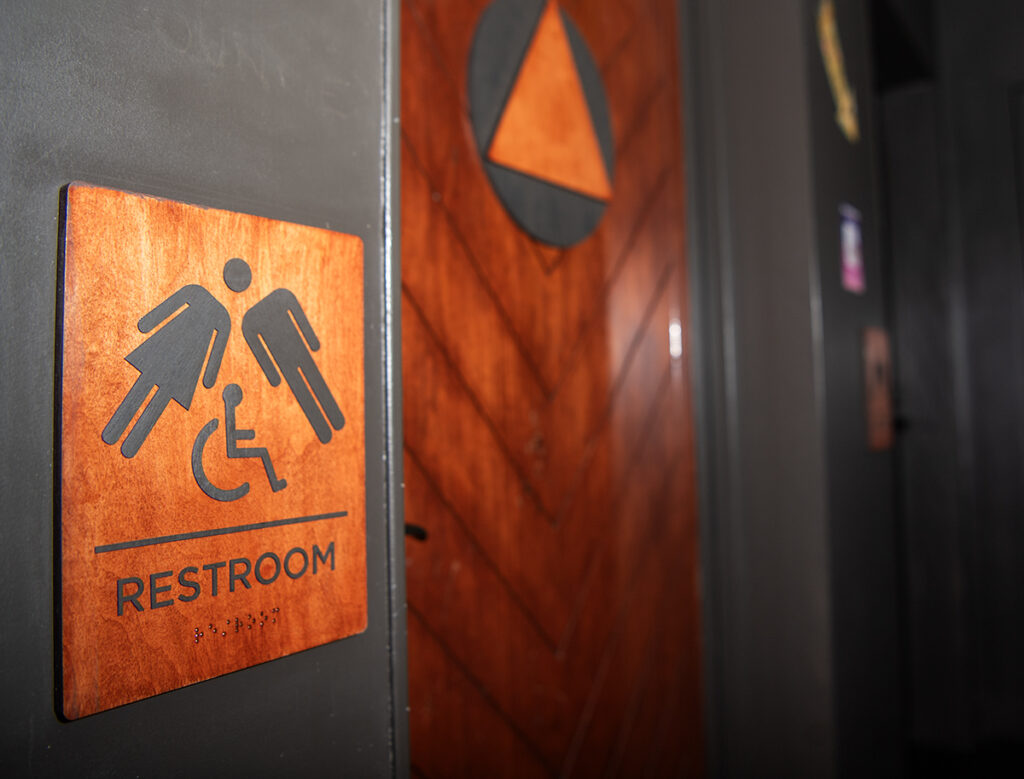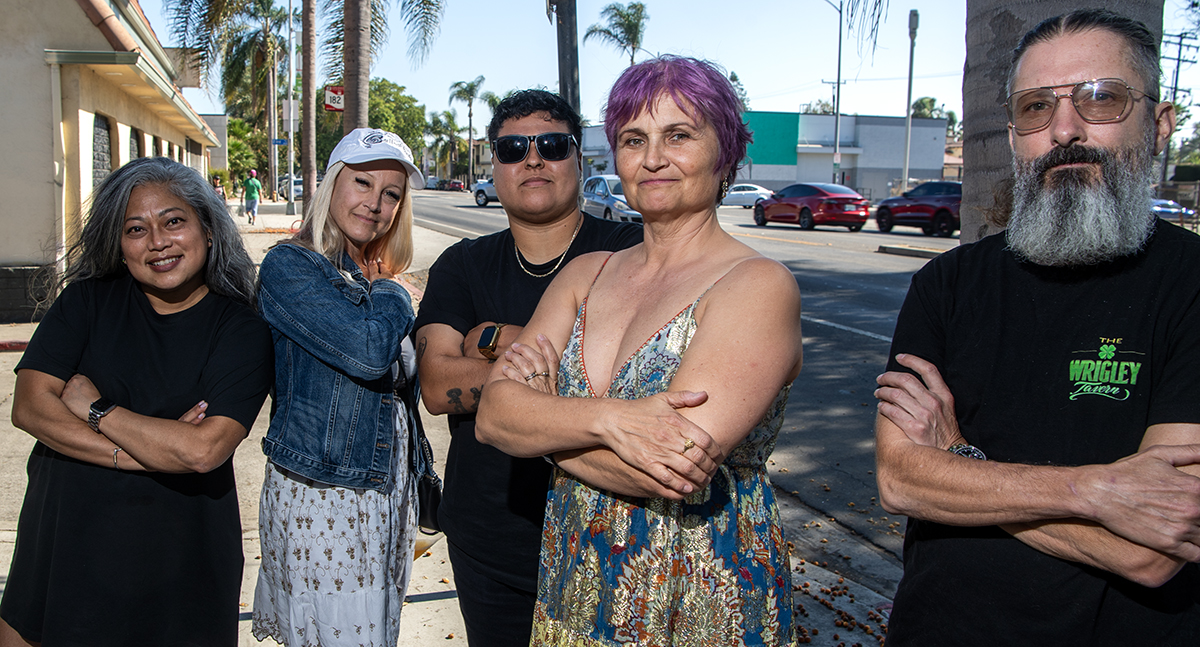At her bar, The Wicked Wolf, Thea Mercouffer strives to create welcoming spaces — poetry nights, art galleries and open gatherings for a diverse, LGBTQ-centric crowd or anyone who feels out of place elsewhere. So it stung, recently, when she was accused of discrimination against a man in a wheelchair.
A lawsuit, brought by a man who has filed at least 20 similar claims in Los Angeles County since May 2024 — and another 50 in San Diego since 2021 — accused Mercouffer of violating the Americans with Disabilities Act, which requires businesses to make sure people with disabilities can access their facilities.
In Mercouffer’s case, plaintiff Marvin Barnett said he was subjected to “difficulty, discomfort and embarrassment” when there were no wheelchair-accessible tables, counters or restrooms in The Wicked Wolf.
Mercouffer took issue with the claims. The photos included as evidence in the lawsuit, she said, conspicuously didn’t show a portion of lowered bar counter, ADA-compliant seating options and wheelchair-accessible bathroom.
Nevertheless, after failing to respond to the lawsuit while trying to negotiate an out-of-court settlement, Mercouffer now owes a $8,765.70 default judgment to Barnett.
After learning she wasn’t alone in this situation, Mercouffer is now hitting back.
The firm representing Barnett, the San Diego-based Andrews Law Group, also recently won judgments for him or other plaintiffs against Gallagher’s Pub, The Wrigley Tavern, PBS Pub & Co. and Port City Tavern.
The owners of those Long Beach bars have now banded together to help cover attorney fees Mercouffer needed to file a counterclaim against Barnett, alleging he never set foot in The Wicked Wolf and instead hired “spotters” to take pictures. They hope it will be a deterrent against more ADA lawsuits.
“The less there are successful lawsuits, the more likely it is that they’re going to go ‘that’s not a very good place to pull this,’” said Christina Cabrera, part-owner of PBS Pub.
Mercouffer’s counterclaim represents another front in a long-running battle over the Americans with Disabilities Act, which has opened up businesses to civil rights lawsuits since it was passed federally in 1990. One side argues the lawsuits hold business owners accountable for discrimination, while small business owners insist the law firms filing the suits just want quick payments and see ADA compliance as an easy win.
Brian Andrews, who founded The Andrews Law Group, rejects this accusation. He said he represents “disabled folks who have enough pain in their lives already” and don’t deserve to “be embarrassed when there’s not a seat or a bathroom they can use comfortably.”
Despite what Mercouffer and the other business owners may think, their bars’ designs are discriminatory, according to Andrews, who said he hired an ADA expert to evaluate each one and detail exact measurements and legal reasons why they’re not compliant.

It’s righteous work, he says, that he does at “break-even cost.”
On the opposite side, attorney Mike Karlin, who often defends ADA lawsuits at The Karlin Law Firm, said the laws “are very much in favor of the plaintiff.”
The business being sued must choose between settling the case, often for a few thousand dollars, “or likely spend five to 10 times as much to defend the case,” he said.
The cases cannot easily be dismissed even if the business is in full ADA compliance, according to Karlin.
Michele Dobson, the attorney representing The Wicked Wolf in the countersuit, said this is the fourth time a law firm has come to Long Beach and hit local business owners with a round of lawsuits.
California State Sen. Roger Niello blames “predatory law firms” for targeting small businesses across the state, and they’ve only become more prevalent, he said, especially against owners who don’t speak fluent English. For the last 15 years, he’s been working on legislation to offer them a shield.
Niello’s current proposal, Senate Bill 84, would require individuals to give a business that employs 50 or fewer people 120 days to fix any alleged ADA violations before filing a lawsuit.
The bill would also reduce the minimum damages per violation from $4,000 to $2,000 if a business can prove it has 25 or fewer employees and made less than $3.5 million over the previous three years.
Despite receiving bipartisan support when it passed the state senate in June, Niello said his bill is currently stuck in the Assembly Judiciary Committee because the chair wants it amended.
The problem, Niello said, is the amendment would rely on a mandatory ADA inspection by a Certified Access Specialist, of which there are roughly 900 in the state, to inspect nearly 4 million businesses.
A similar bill, Assembly Bill 649 authored by Long Beach Assemblyman Josh Lowenthal, passed the assembly in June but is stuck in the Senate Judiciary Committee, Niello said.
The senator said he hopes a hearing will take place on both bills early next year.
Mercouffer, meanwhile, is due back in court, seeking $18,784.17 to recoup the costs of defending the case.

